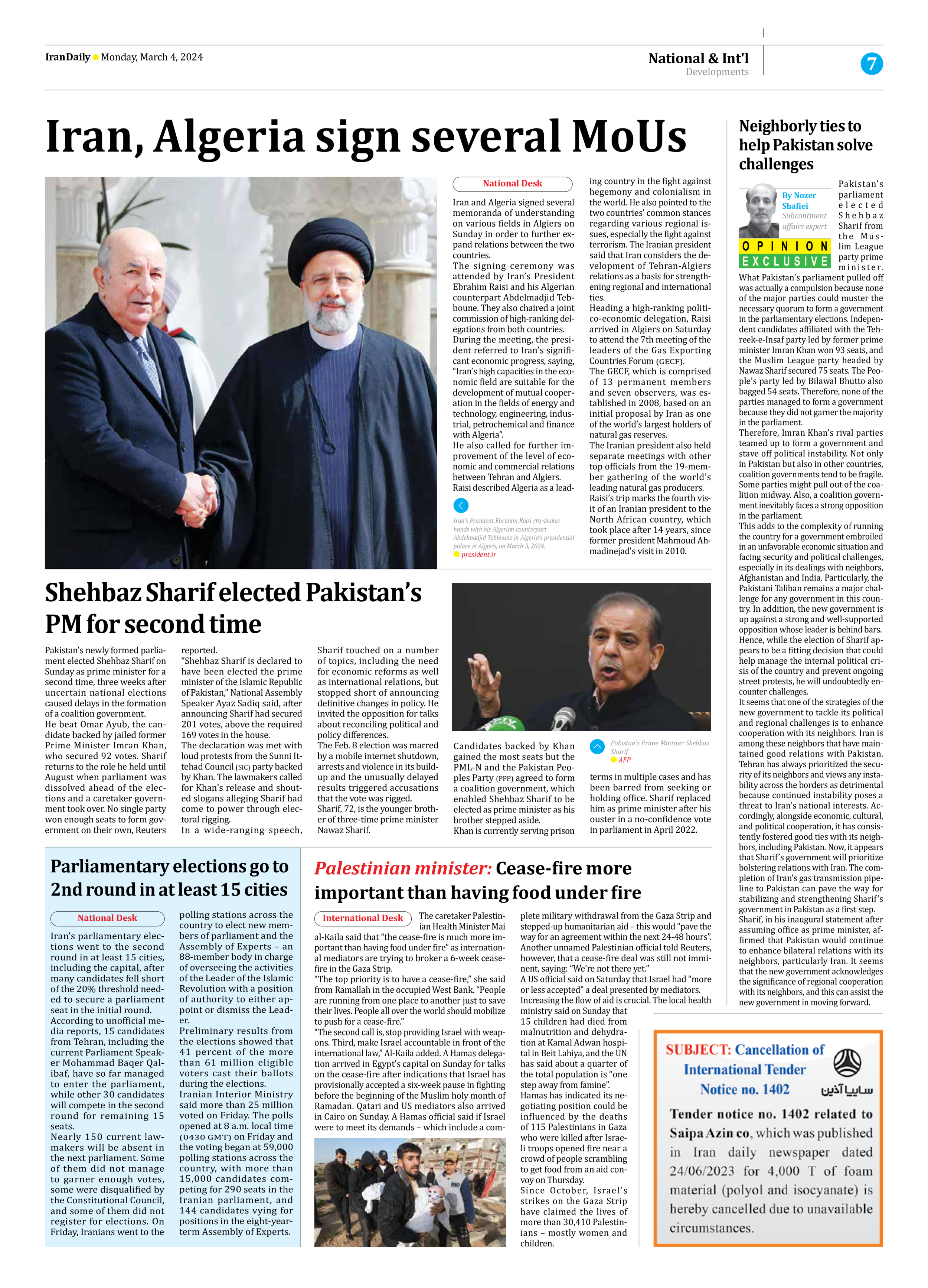
Parliamentary elections go to 2nd round in at least 15 cities
Iran’s parliamentary elections went to the second round in at least 15 cities, including the capital, after many candidates fell short of the 20% threshold needed to secure a parliament seat in the initial round.
According to unofficial media reports, 15 candidates from Tehran, including the current Parliament Speaker Mohammad Baqer Qalibaf, have so far managed to enter the parliament, while other 30 candidates will compete in the second round for remaining 15 seats.
Nearly 150 current lawmakers will be absent in the next parliament. Some of them did not manage to garner enough votes, some were disqualified by the Constitutional Council, and some of them did not register for elections. On Friday, Iranians went to the polling stations across the country to elect new members of parliament and the Assembly of Experts – an 88-member body in charge of overseeing the activities of the Leader of the Islamic Revolution with a position of authority to either appoint or dismiss the Leader.
Preliminary results from the elections showed that 41 percent of the more than 61 million eligible voters cast their ballots during the elections.
Iranian Interior Ministry said more than 25 million voted on Friday. The polls opened at 8 a.m. local time (0430 GMT) on Friday and the voting began at 59,000 polling stations across the country, with more than 15,000 candidates competing for 290 seats in the Iranian parliament, and 144 candidates vying for positions in the eight-year-term Assembly of Experts.







